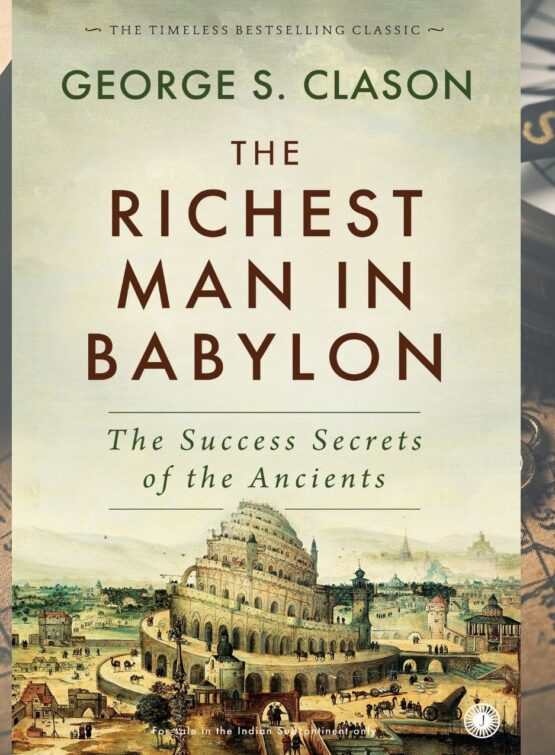Overview:
Hello Buddies! This article is a summary of one of the best books ever written on Long Term Investing in Stock Markets, “One Up On Wall Street”. It was written by the hedge fund manager and investor Peter Lynch. In his term as a fund manager in multi-billion dollar Fidelity Magellan Fund for 13 years from 1977 to 1990, Lynch was able to generate a 29.2% annual return on the investment for his customers. It is equivalent to transforming $1000 into $780000 in 13 years.
One Up On Wall Street was published in 1989. There are a lot of useful tips for amateur and retail investors to benefit from Stock Market investments. I have selected and invested in two small-cap stocks after reading this marvel. Unfortunately, the March crash had rock-bottomed one of the stocks. So I bought a few more and averaged the buy-price to some extent.
Here are my key takeaways of One Up On Wall Street:
- Think for yourself and invest for a Long-Term. Understand what the company does before putting your money.
- Study the firms, businesses, and products you have an edge or knowledge. For instance, a person working at a bank has an extra advantage of investing in banking and finance stocks.
- Don’t listen to so-called professionals; Smart money isn’t so smart.
- Stocks aren’t lottery tickets. There’s a company attached to every share.
- Ask yourself whether you can afford to lose the invested money. Consider other investments before stocks. Do you have a home? If not, invest in that first.
- If you invest like an institution, you are doomed to perform like one.
- Sooner or Later, Earnings will make or break a stock.
- Don’t be panicked if the stock price dips to 40% or lower in short term fluctuations. It will be a great chance to accumulate even more.
An amateur investor can beat the professionals over the long term. Here are some reasons why:
- Large Fund managers usually are not interested to put their money in Small Caps and some Mid Caps.
- They can’t risk their job for making more returns for their clients. Explaining their clients about investing in a Small Cap whose stock has reduced by 60% is a very arduous task. It is better to follow the herd than being a Contrarian.
- Capital is dependent on clients who fear the bear market and cherish bull markets. Therefore, fund managers are left with very little money when stocks are cheap and more money when stocks are expensive.
Six categories of stocks:
Slow Growers: These are big, established firms at a stage where they rise slowly. Normally, their revenue growth is in single digits. They pay good dividends. It is not a very wise choice for making more returns. Examples: IOC, SAIL.
Stalwarts: Such firms are established and relatively dynamic. They are not very agile as well. Growth would be 10 to 15% per year. Examples: TCS, ITC.
Fast Growers: Companies with the aggressive growth of 25% or more per year. These are a must in every portfolio. Examples: Bajaj Finance, DMart.
Cyclicals: Firms and businesses that are seasonal. Airlines, automobile manufacturers, defense, tire, steel, cement, etc. are cyclical in nature.
Asset Players: These companies have valuable assets. The stock markets are not interested in these old-fashioned companies. In India, PSUs like ONGC, SBI, BHEL, etc. are the best examples.
Turn Arounds: Mostly, these are the firms with lost businesses due to rivals and advanced technology. The stocks are available at a very cheap price. Such investments could go either way as the extraordinary or utter flop. Be cautious while investing.
Ten-Bagger (Multi-Bagger):
A “ten-bagger” is a stock that returns ten times the capital invested. You will find a ten-bagger very rarely. But one such catch will make you an outstanding investor.
Traits of Ten-baggers:
- Dull or ridiculous name
- It does something boring or unpleasant.
- It’s a by-product.
- The institutions don’t control it. The market analysts don’t chase it.
- There’s something not good about it.
- Many rumors surrounding it. For example, it’s involved with Mafia or toxic waste.
- It belongs to a no-growth sector.
- It has got a niche (moat).
- People need to continue purchasing it.
- It uses technology.
- The insiders buying the shares.
- The firm is doing share buy-backs.
Stay away from these stocks:
- The Next Big thing like next FaceBook, Apple, or Cocacola
- Diworsefications – The companies diversified into many irrelevant sectors and businesses.
- The Whisper Stock like a company with a solution to an ongoing significant issue like Corona Vaccine during the present pandemic.
- The Middleman – Such a company with its entire business on only one or two customers.
- The Hot sector stocks like internet stocks during Dot Com Bubble.
That’s it Buddies! There is much more information in this book. If you can, do purchase and read. It’s in fact a must read for investors sincere in the value and long term investing.
Note:
I provide the information and my views on the website only to educate people, new investors, and stock market enthusiasts on equity and other market investments. Please consult a SEBI registered financial advisor before making any investments in the stock or commodity markets. In case of any queries, you can contact me on Contact Form or email: admin@valueinvestingonline.in.




